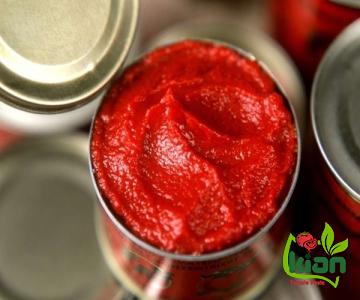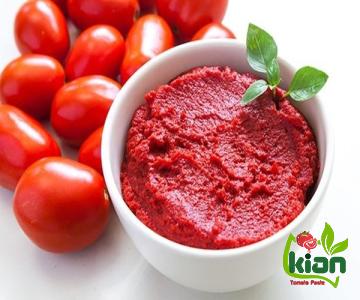However, an occasional drawback that haunts tomato paste producers and consumers alike is its bitter taste. In this article, we will delve into the reasons behind tomato paste bitterness, explore potential solutions, and discuss the implications for market players. 1. Factors contributing to tomato paste bitterness: a) Tomato variety: Certain tomato varieties have inherently bitter compounds, such as high levels of polyphenols or alkaloids. These compounds can be intensified during the paste-making process, leading to bitterness. b) Processing methods: The processing techniques employed during tomato paste production play a pivotal role in determining its taste.

.
 Overcooking, extended exposure to high temperatures, and prolonged storage can trigger the release of bitter flavors. c) Harvesting and ripening conditions: Improper harvesting and suboptimal ripening conditions can impact the flavor profile of tomatoes, resulting in a higher probability of bitterness being present in the paste. 2. Solutions to mitigate tomato paste bitterness: a) Tomato selection: Choosing tomato varieties with lower levels of bitter compounds can help reduce the likelihood of bitterness in the resulting paste. Breeders and growers can work together to develop and cultivate tomato varieties specifically aimed at minimizing bitterness. b) Enhanced processing techniques: Implementing advanced processing techniques, such as shorter cooking times and lower temperatures, can help retain the natural sweetness of tomatoes while avoiding the development of bitter flavors.
Overcooking, extended exposure to high temperatures, and prolonged storage can trigger the release of bitter flavors. c) Harvesting and ripening conditions: Improper harvesting and suboptimal ripening conditions can impact the flavor profile of tomatoes, resulting in a higher probability of bitterness being present in the paste. 2. Solutions to mitigate tomato paste bitterness: a) Tomato selection: Choosing tomato varieties with lower levels of bitter compounds can help reduce the likelihood of bitterness in the resulting paste. Breeders and growers can work together to develop and cultivate tomato varieties specifically aimed at minimizing bitterness. b) Enhanced processing techniques: Implementing advanced processing techniques, such as shorter cooking times and lower temperatures, can help retain the natural sweetness of tomatoes while avoiding the development of bitter flavors.
..
 Improved quality control measures throughout the production process can also aid in minimizing bitterness. c) Optimal storage conditions: Proper storage practices that maintain the integrity of tomatoes, such as controlling temperature and humidity, can help preserve their natural flavors and reduce the risk of bitterness. 3. Market implications: a) Consumer perception and demand: Tomato paste bitterness can adversely impact consumer perception and satisfaction. Continual bitterness-related experiences may discourage consumers from purchasing certain brands or products, leading to a decline in demand. b) Product differentiation and branding: Tomato paste manufacturers can differentiate themselves in the market by focusing on producing superior-tasting, non-bitter options.
Improved quality control measures throughout the production process can also aid in minimizing bitterness. c) Optimal storage conditions: Proper storage practices that maintain the integrity of tomatoes, such as controlling temperature and humidity, can help preserve their natural flavors and reduce the risk of bitterness. 3. Market implications: a) Consumer perception and demand: Tomato paste bitterness can adversely impact consumer perception and satisfaction. Continual bitterness-related experiences may discourage consumers from purchasing certain brands or products, leading to a decline in demand. b) Product differentiation and branding: Tomato paste manufacturers can differentiate themselves in the market by focusing on producing superior-tasting, non-bitter options.
…
 By investing in research and development, companies can create innovative solutions that eliminate or minimize bitterness, offering consumers a premium product with enhanced taste. c) Regulatory considerations: As the demand for high-quality tomato paste continues to rise, regulatory bodies may establish stricter quality control standards to ensure consumer protection. Compliance with these regulations will be crucial for players in the tomato paste industry. Conclusion: Although tomato paste bitterness can pose challenges for both producers and consumers, research, innovation, and continuous improvement in the production process can help overcome this issue. By selecting the right tomato varieties, implementing appropriate processing techniques, and staying vigilant about storage conditions, manufacturers can create superior-tasting tomato paste products that satisfy consumer preferences. As the market evolves, those who prioritize taste and quality will hold a competitive advantage and meet the growing demand for non-bitter tomato paste.
By investing in research and development, companies can create innovative solutions that eliminate or minimize bitterness, offering consumers a premium product with enhanced taste. c) Regulatory considerations: As the demand for high-quality tomato paste continues to rise, regulatory bodies may establish stricter quality control standards to ensure consumer protection. Compliance with these regulations will be crucial for players in the tomato paste industry. Conclusion: Although tomato paste bitterness can pose challenges for both producers and consumers, research, innovation, and continuous improvement in the production process can help overcome this issue. By selecting the right tomato varieties, implementing appropriate processing techniques, and staying vigilant about storage conditions, manufacturers can create superior-tasting tomato paste products that satisfy consumer preferences. As the market evolves, those who prioritize taste and quality will hold a competitive advantage and meet the growing demand for non-bitter tomato paste.











Your comment submitted.